5 big changes coming to Total War: Three Kingdoms
We go hands-on and talk to Creative Assembly to find out the new and returning features coming to Total War: Three Kingdoms.
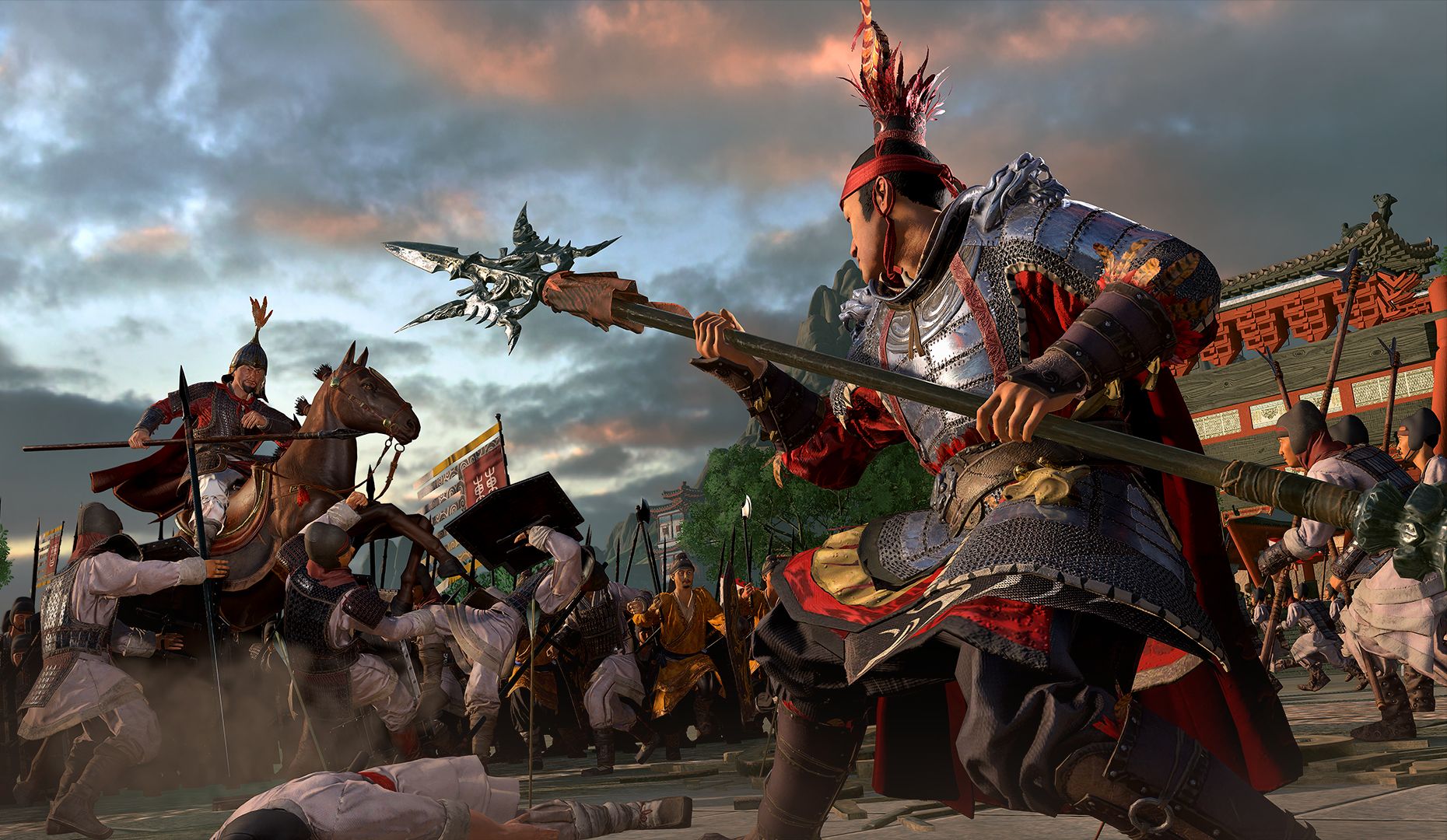
Total War: Three Kingdoms is the series' preeminent return to a historical setting, and Creative Assembly's chance to show they can still do grand strategy better than the rest without the aid of orcs and vampires. While it's still due sometime early next year, since the announcement in January, all that's been revealed is the setting: ancient China, a first for Total War.
Now, we've finally played it and talked to the creators at the helm. Three Kingdoms isn't a hard reset for the historical games, but it seems to be a comforting return to strategy grounded in the real world, albeit with some new features and fantastic flourishes. Set in 190 CE, Three Kingdoms visits the Han Dynasty empire warring itself while Dong Zhuo's regime grows in strength. The debut cinematic trailer showed sublime, misty vistas and fantastic heroes taking on hordes of enemies by themselves. And in my recent hands-on with Three Kingdoms, the aesthetic liberties with history carry through every inch of the game.
I only got to play a short battle, about as illuminating getting a whiff of the room Three Kingdoms passed through that day, so my takeaway from 15 minutes of skirmishing isn't too descript. Total War's best bits are in the details, and while throwing units at one another on a massive battlefield is always a wonder of technology and scale, it was almost impossible to get a sense of how many systems have meaningfully changed from the previous games in such a short time. Just know that it looks lovely—see the first in-engine trailer for reference—and that smashing hundreds of tiny men against one another maintains its appeal.
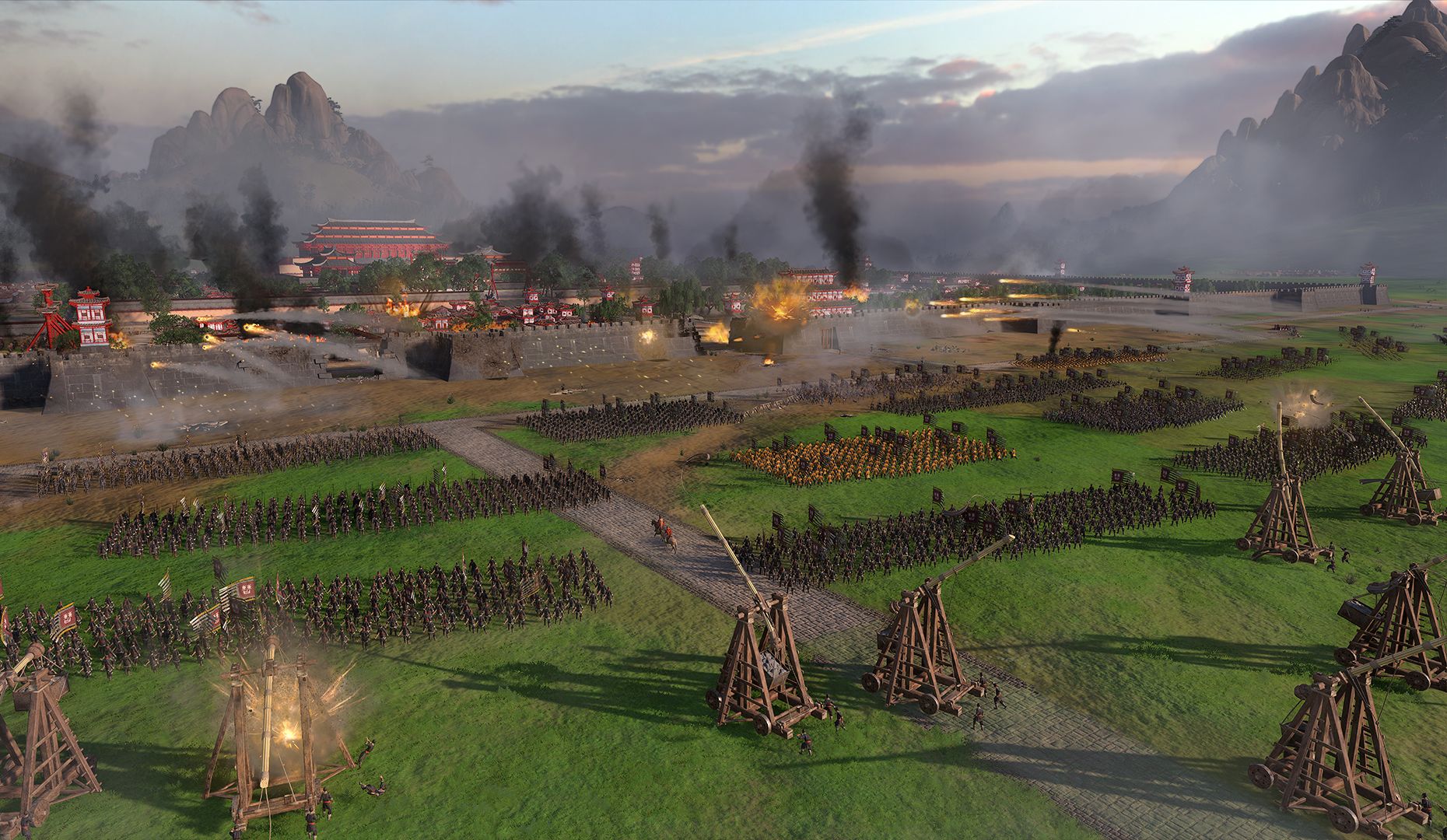
After a brief siege of Xiapi as general Cao Cao where I managed to take the city with one unit remaining, I talked to Game Director Janos Gaspar and Senior Designer Simon Mann of Creative Assembly to get a sense of the more minute changes. Here's everything I learned about what makes Total War: Three Kingdoms different:
Heroes and retinues turn Total War into a soap opera with spears
We've always had characters, but you've never reasoned with them. They were always just pawns on your board
Janos Gaspar, Game Director
Creative Assembly is using Luo Guanzhong's The Romance of the Three Kingdoms as inspiration, bending—not breaking—the history to suit a mythical interpretation of the battles and leaders that fought them. Hero units work a bit like they did in the Warhammer games, signified by single, powerful units that can tear up entire armies. Based on 11 warlords from the era, they're paired with some special abilities and passive buffs/debuffs meant for pointed tactical use, especially directly against one another.
When you go into most battles, you'll be able to choose up to three hero units to bring with you. Because heroes have varying recruitment options, who you choose will determine what kind of units you'll be able to bring to a given battle. You won't be able to pair any generals without consequence though. Three Kingdoms introduces heavier social dynamics between the lead characters. Generals will all have a taste or distaste for the others in their retinue that can affect how they perform in battle. You'll even need to worry about how they feel about themselves, according to Mann.
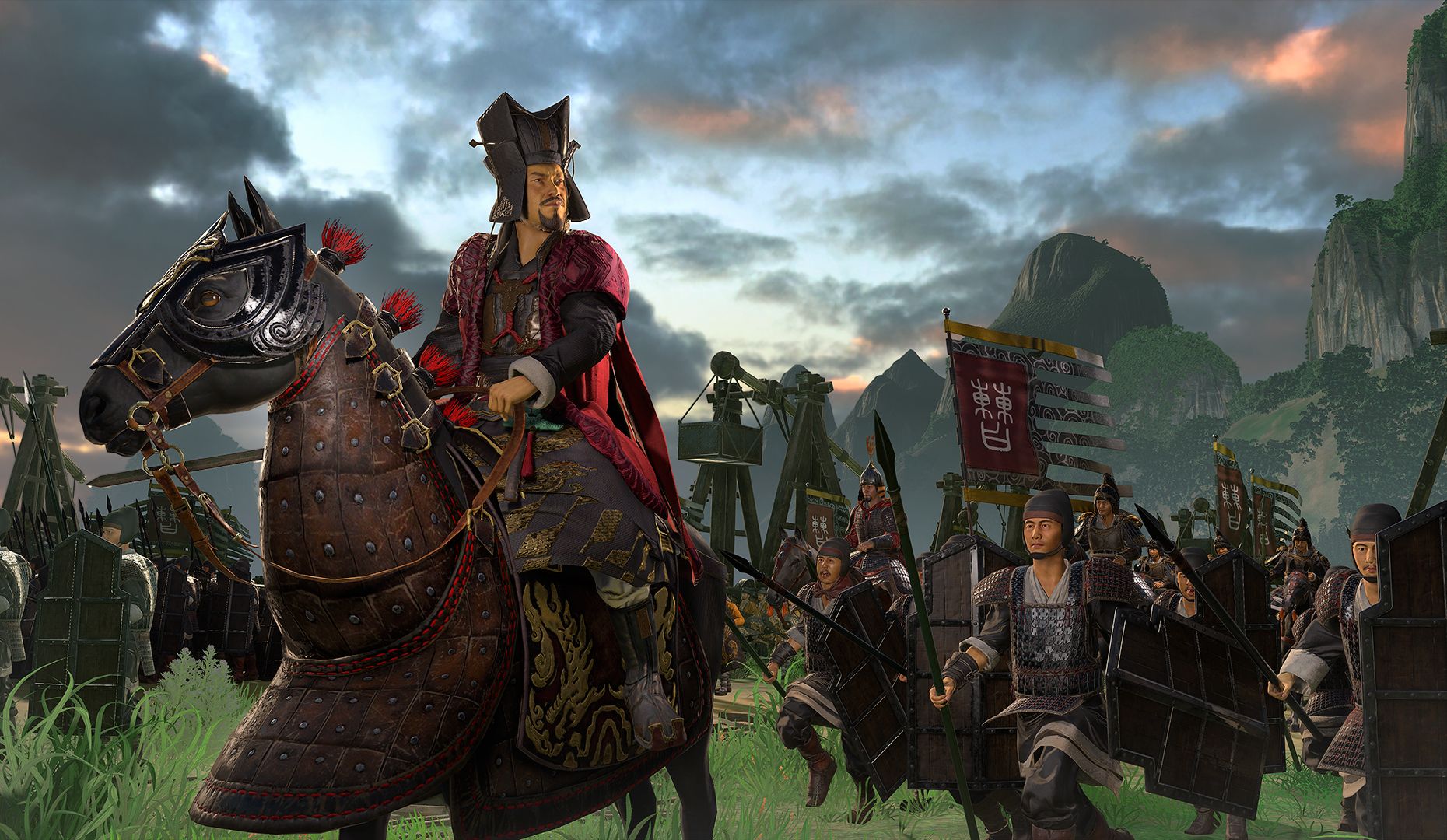
"We have this satisfaction mechanic which is about how a character feels about where they are in life, like their lot within your faction or an enemy faction, and that's something that's driven by all of these relationships and events that occur in every game."
Keep up to date with the most important stories and the best deals, as picked by the PC Gamer team.
While we're not exactly sure how what we'll temporary dub the 'soap opera system' works or looks like, Total War games have been missing out on the fickle human side of historical strategy for some time. "We've always had characters, but you've never reasoned with them. They were always just pawns on your board," says Gaspar. If Three Kingdoms can make it work then we could end up with much more personal stories with every playthrough. But it could also articulate as just another system with random elements to babysit. We'll have to spend some time with it to know for sure.
Unit formations are back, but they're tied to characters
Absent in the Warhammer games, unit formations are an extra tactical layer that effectively shift or buff the function of a given unit. For some, it was too much micromanagement, but Three Kingdoms will introduce them more naturally over the course of a campaign, and tie them directly to certain heroes in your retinue.
Mann explains:"With Total War: Three Kingdoms, we're really pushing the concept of characters, and actually certain characters will be bringing these formations in to get them enabled for the rest of your army. So by default your army potentially can't form a diamond formation with its calvary. But by bringing a high-level strategist in with you, they're actually able to give you those formations, so it's kind of something you progress into as you're playing through the game."
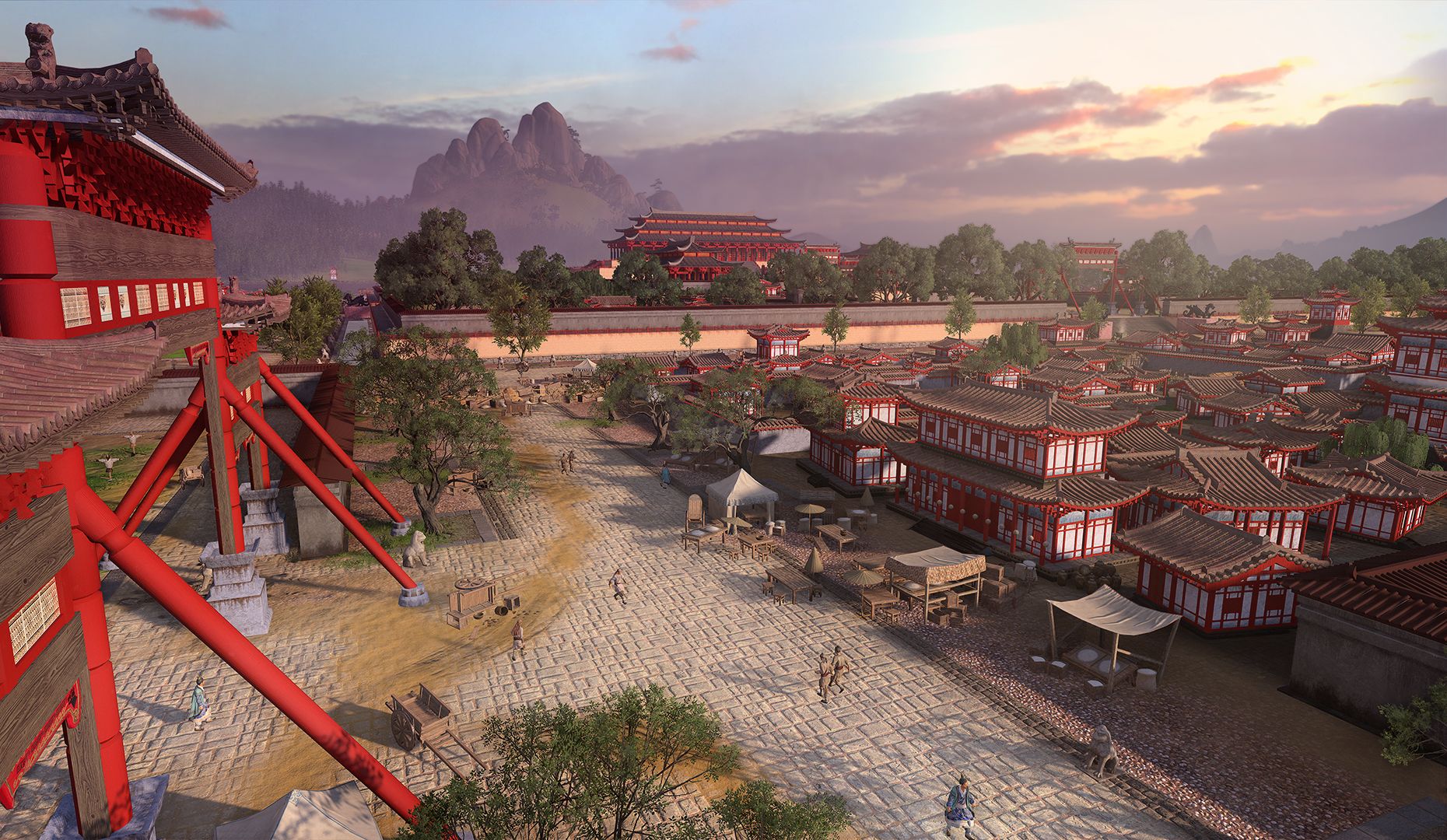
The art direction is a fantastic, romanticized reflection of history
It's meant to evoke popular painting characteristics of the era. The changes are subtle at first glance, especially if you're coming straight from Warhammer 2, but a brief glimpse of the turn-based map showed exaggerated, verdant landscapes. An early version of one tech tree was mapped to a windswept painting of a cherry tree in a style reminiscent of the era.
Creative Assembly is taking a risk by framing the 'history' of Three Kingdoms so overtly in the era's art and folklore, but it never felt like too much. I appreciate cultural context as much as cold, hard facts, and players should be able to parse truth from reality with ease. For those that prefer a textbook presentation though...
A classic mode will make Three Kingdoms a bit more true to life
The default game mode will see heroes as mythical figures capable of tearing up hundreds of enemy soldiers on their lonesome. Classic mode will give the generals some bodyguards to depict them in a more realistic manner. They won't be sweeping dozens of units aside with a single swipe, but they'll be just as efficient in practice.
Besides character appearance, Mann shed some more light on some more differences between the two modes. "Things like random events, certain characters, certain historical events won't be occurring within the [classic] mode because they're more fictional and part of the actual Romance text."
Agents are changing
We just don't know how yet. Historically, agents would pile up over time and required way too much micromanagement, so a change has long been overdue. Gaspar tells me not to worry, but that it's too early to talk details. "It's very exciting. It's going to be very surprising."
A surprise sounds nice, I just hope it's a good one.
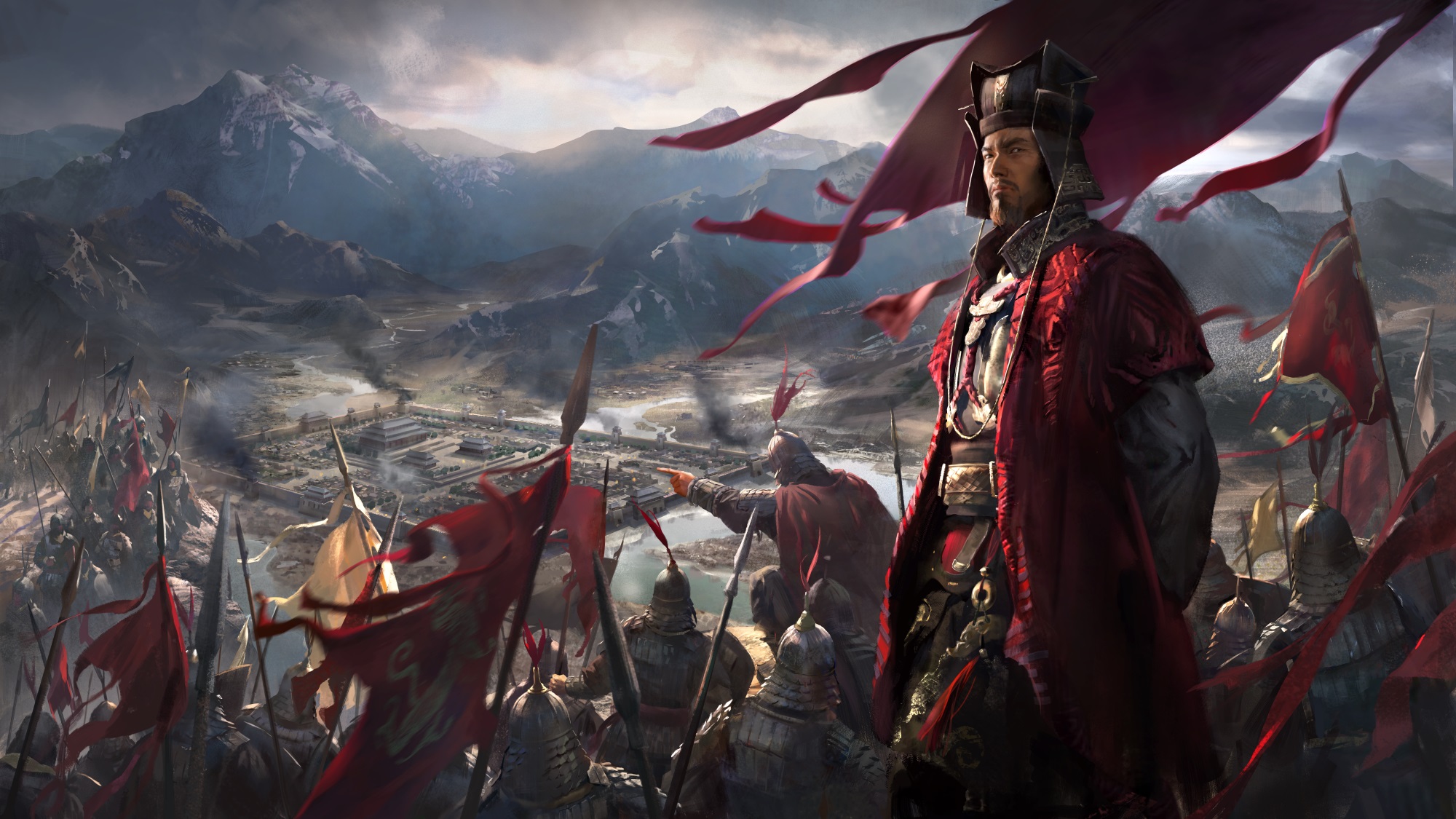
James is stuck in an endless loop, playing the Dark Souls games on repeat until Elden Ring and Silksong set him free. He's a truffle pig for indie horror and weird FPS games too, seeking out games that actively hurt to play. Otherwise he's wandering Austin, identifying mushrooms and doodling grackles.


